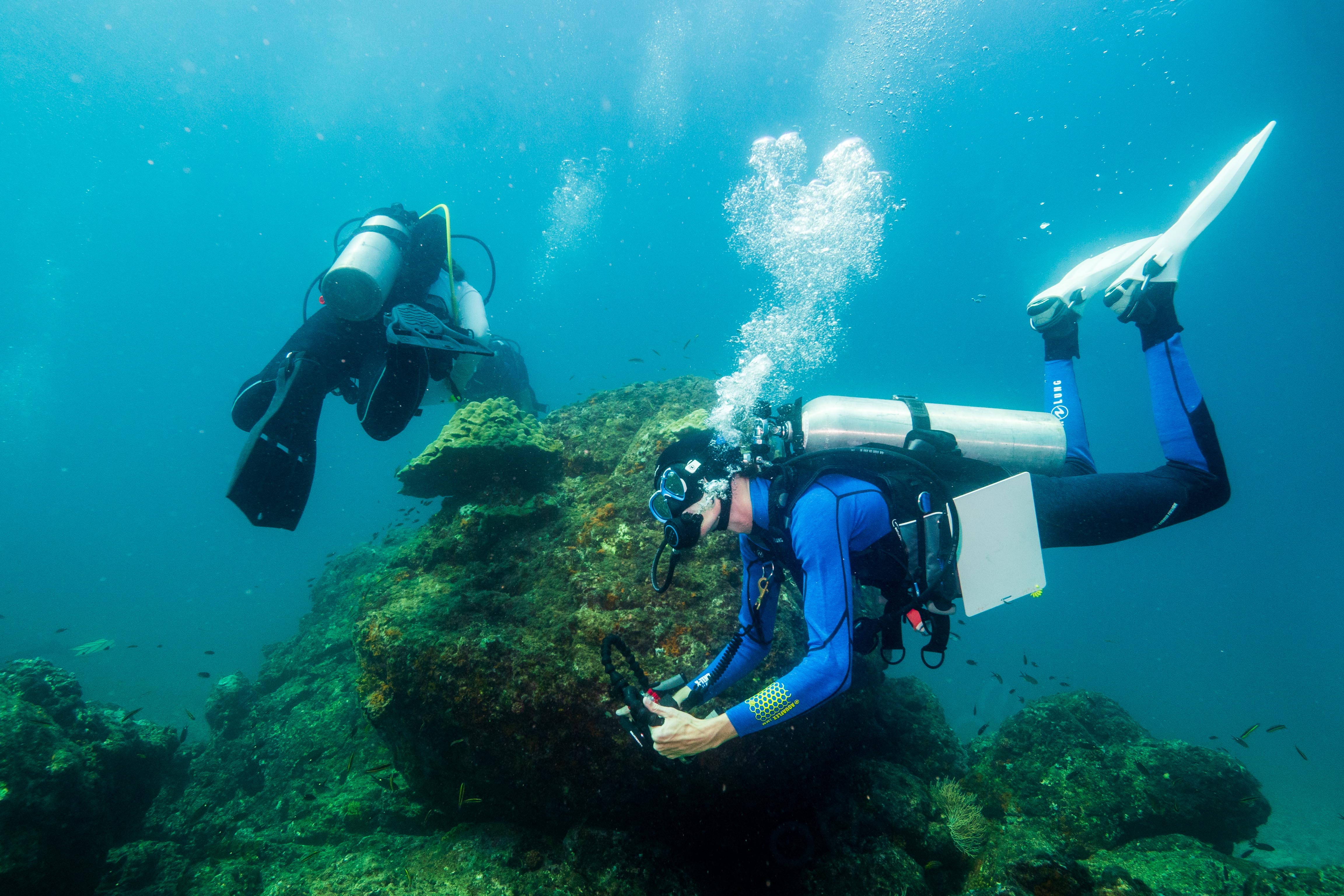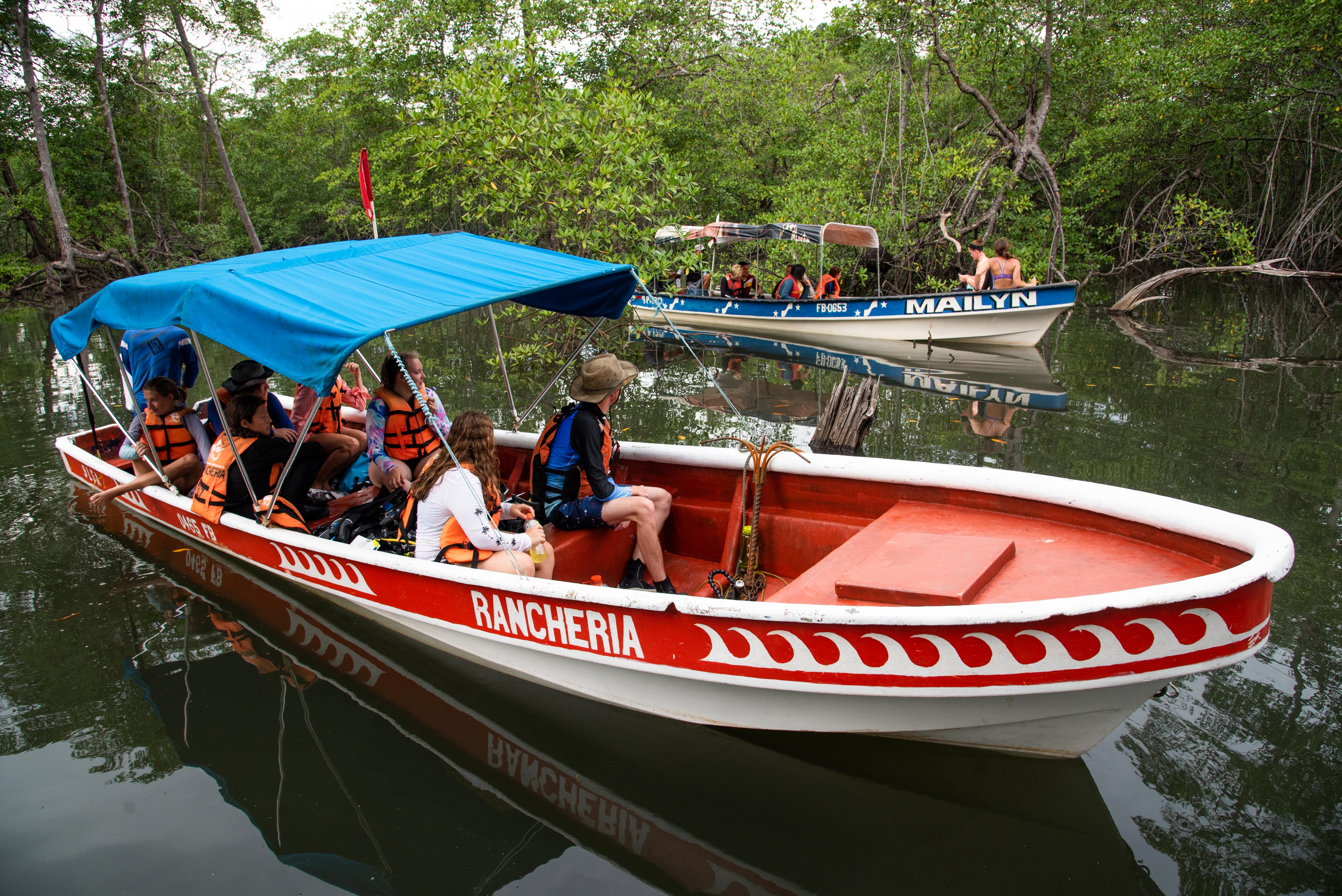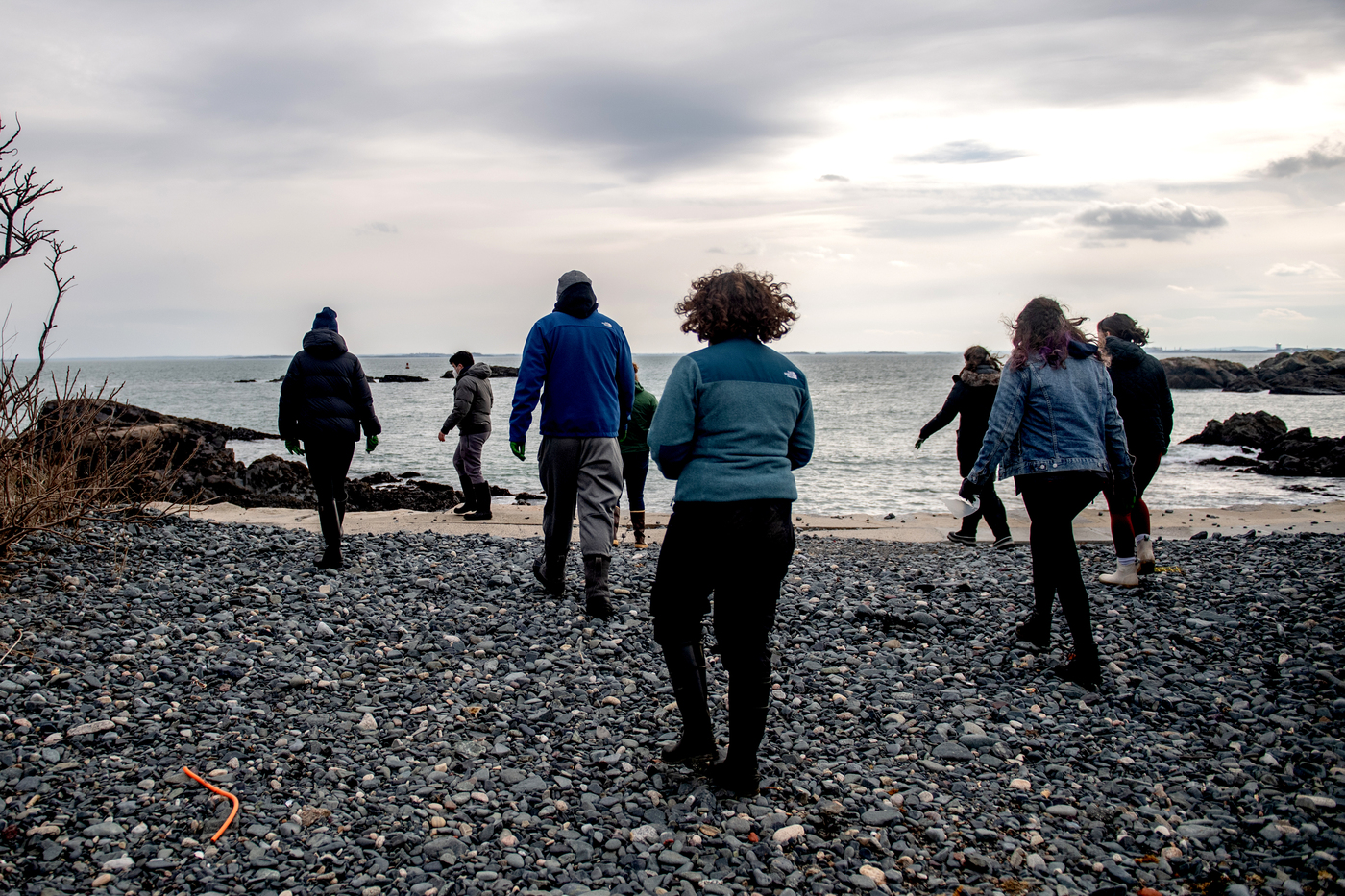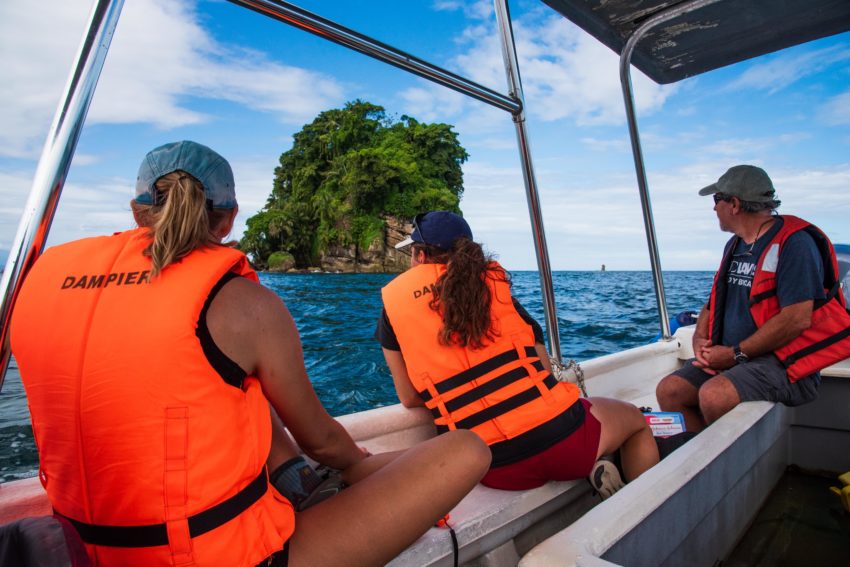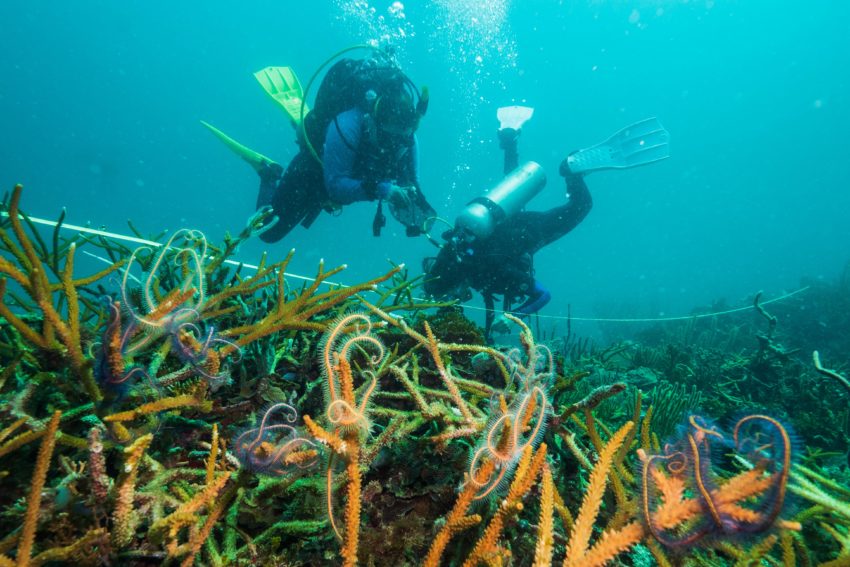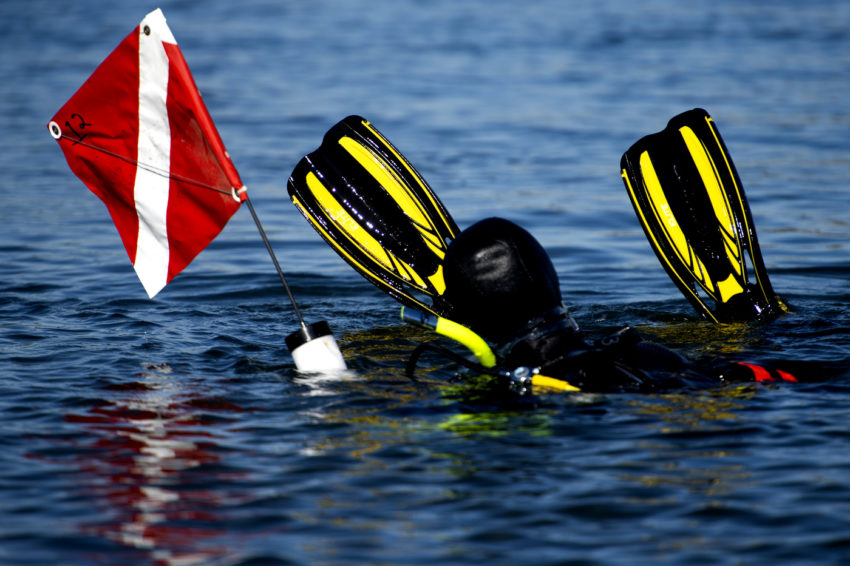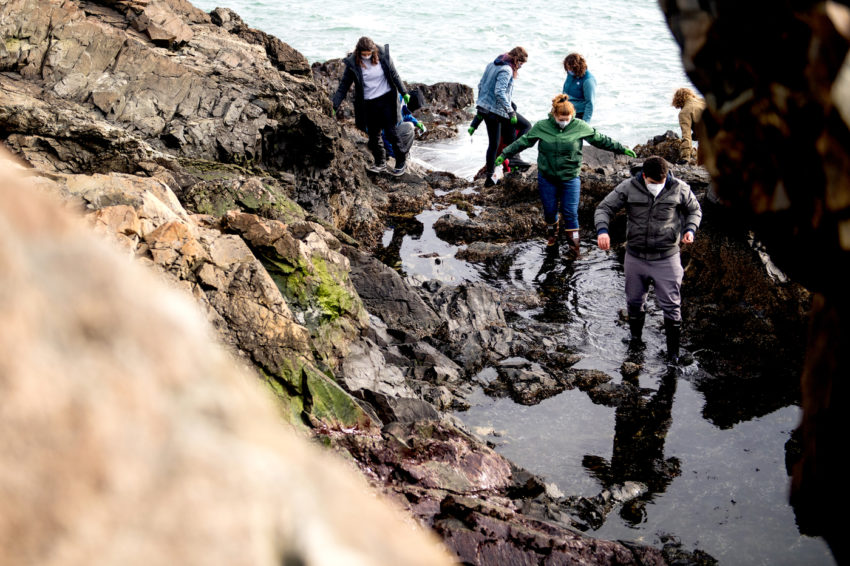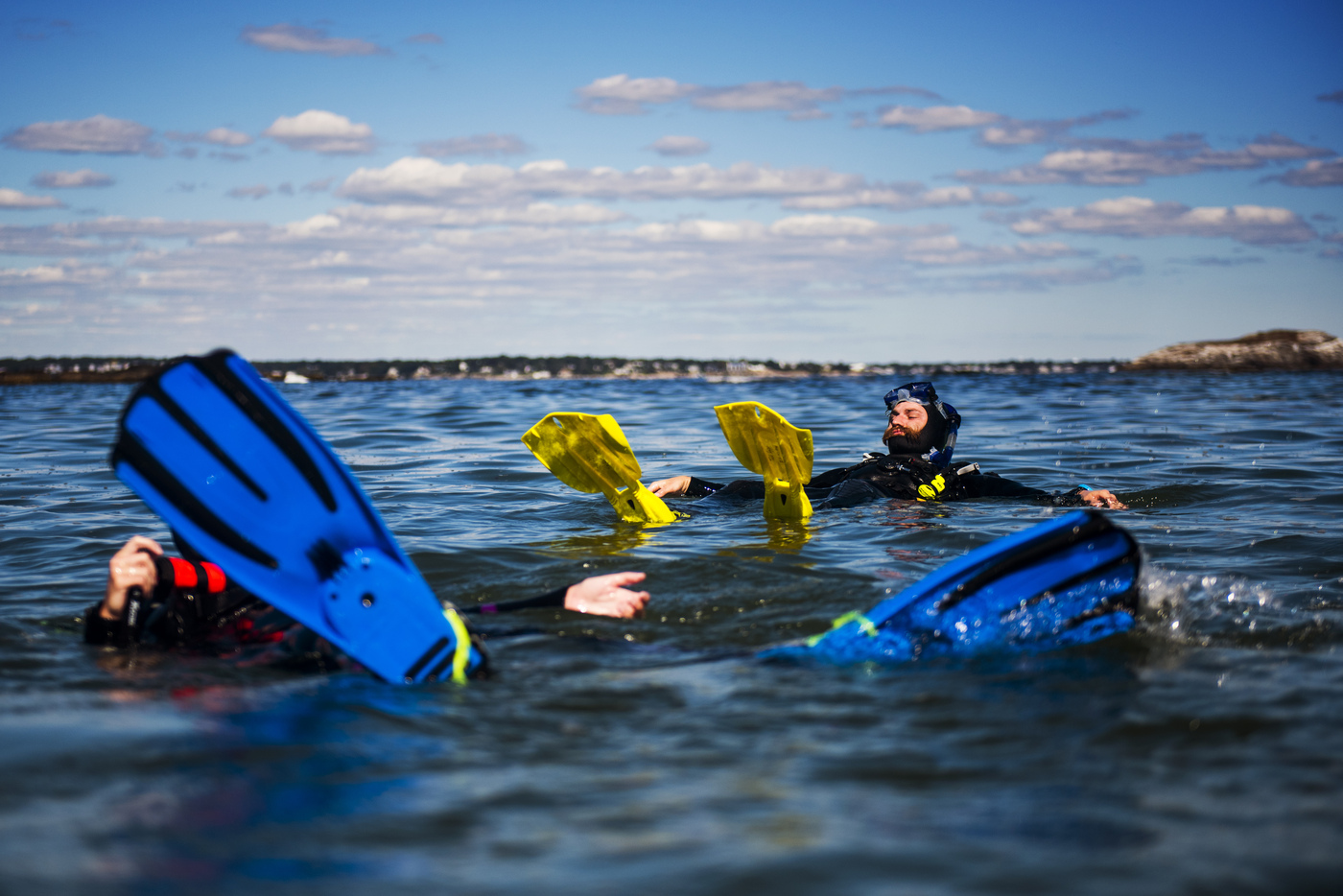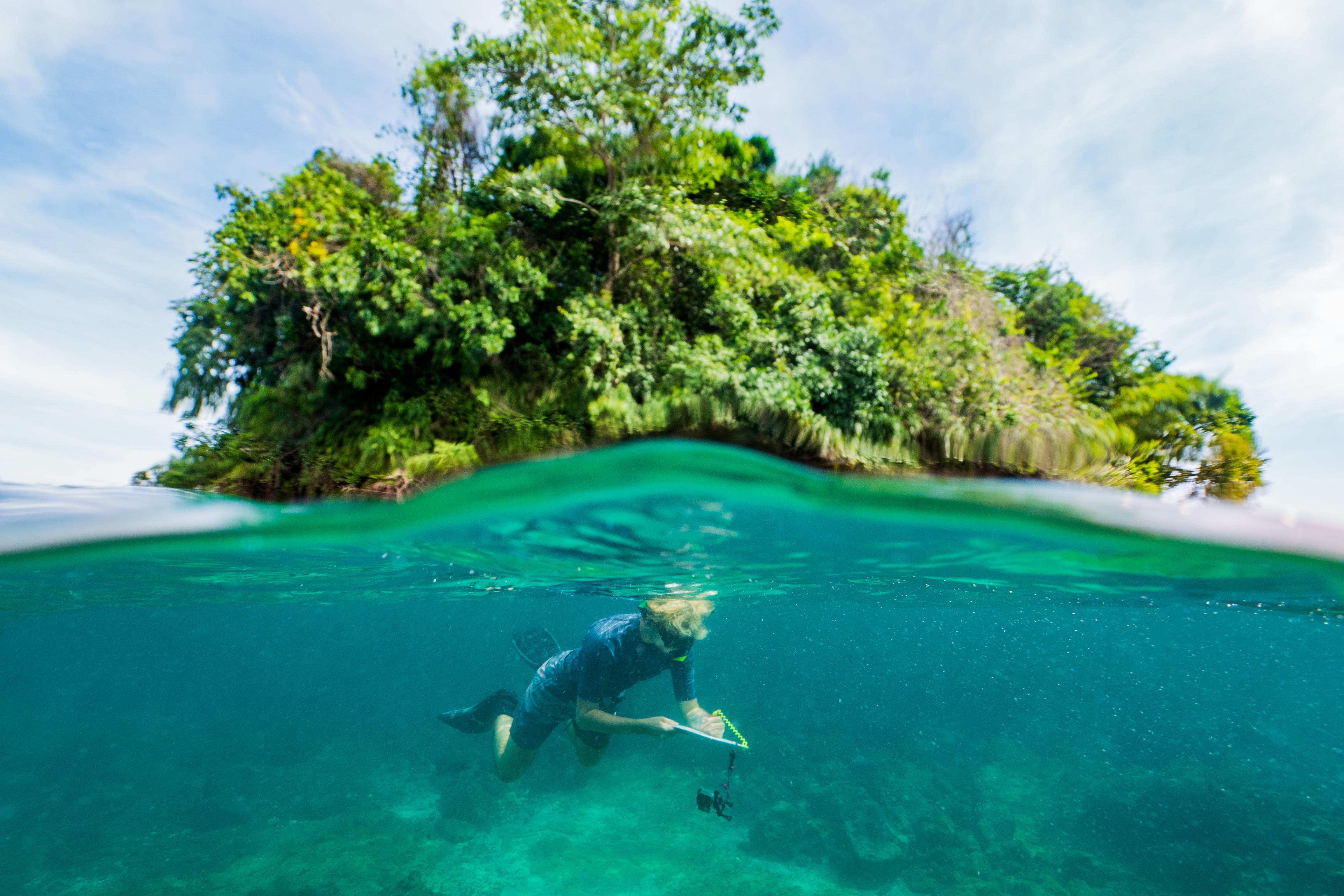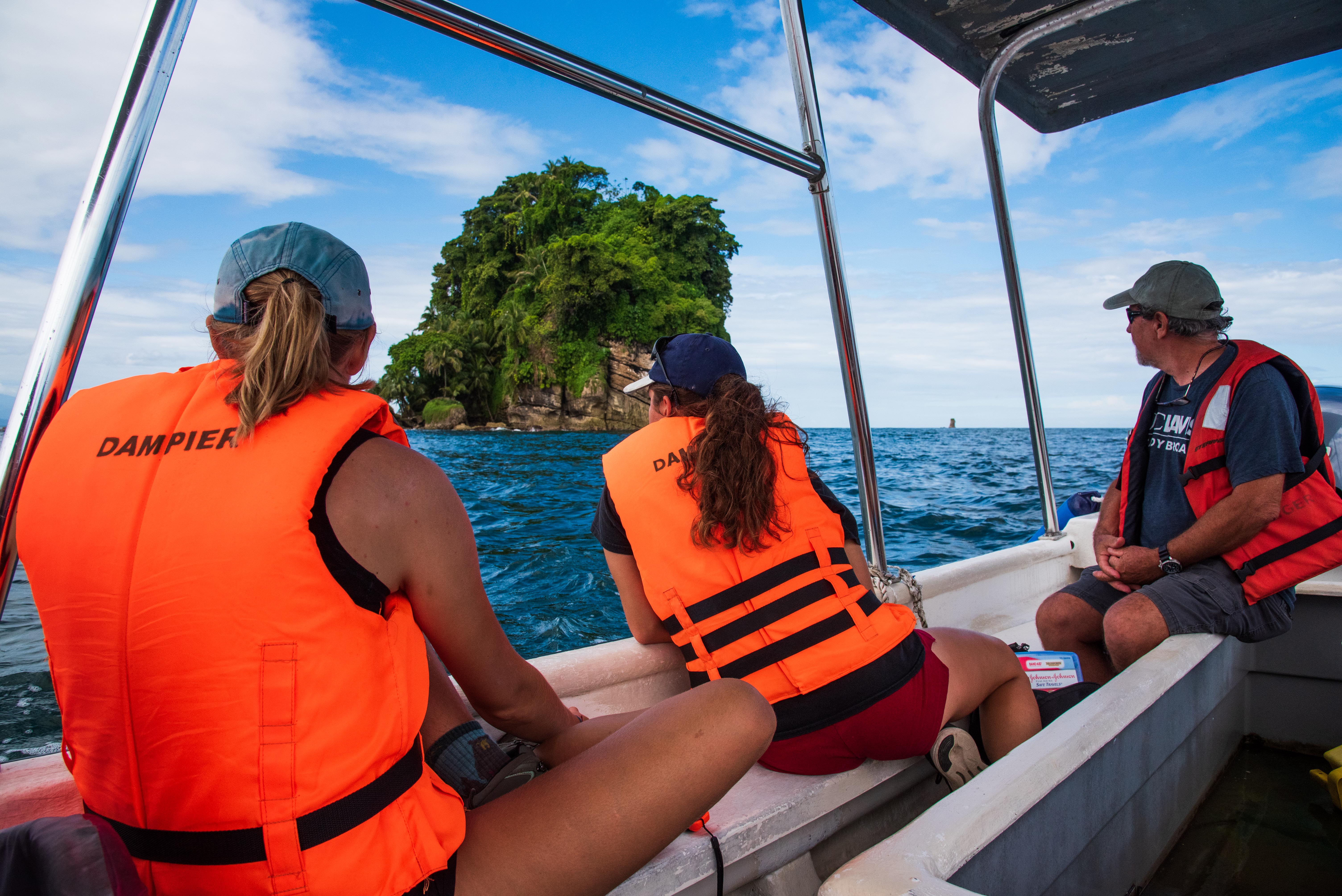Take a deep dive into the Three Seas Program
The immersive and field-intensive program in marine biology allows students to live and work in three distinct environments. You’re invited to swim along.
Learn More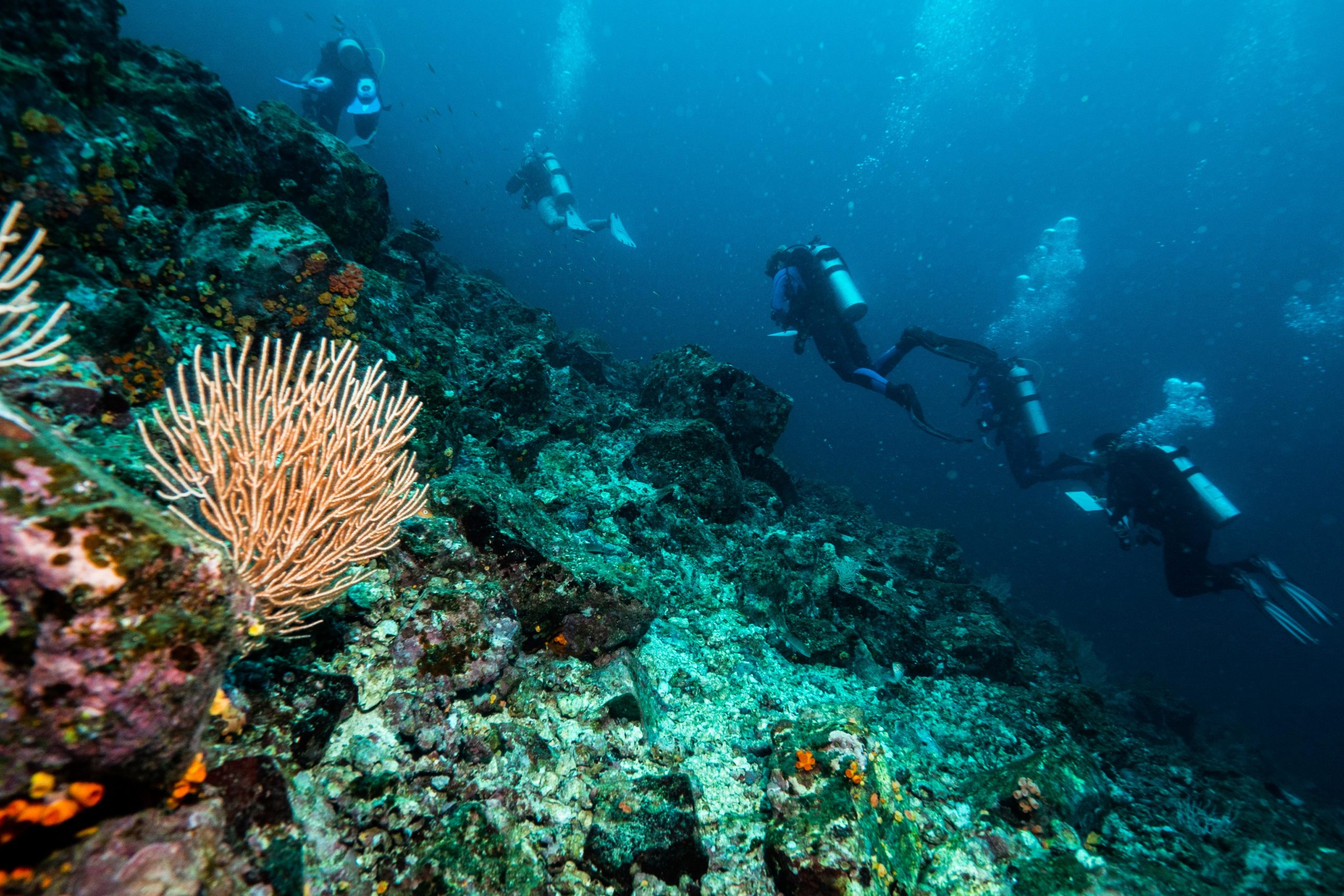
Nahant
Students begin the Three Seas Program at Northeastern University’s Marine Science Center/Coastal Sustainability Institute located in the Gulf of Maine. Students actively study in coastal habitats that include the rocky intertidal, salt marshes, eelgrass beds, shrub kelp, and rocky reefs. At the same time, students have the option of earning their scientific research diver certification. The Marine Science Center (MSC) is located on a 20-acre campus at the end of Nahant, MA, a rocky peninsula extending into the Atlantic Ocean within view of the Boston skyline. Though Nahant is situated only 12 miles from a major harbor and city, the prevailing coastal currents provide remarkably clean and stable seawater, and the 10 ft. tidal amplitude and rocky shoreline provide a variety of intertidal and subtidal communities ideally suited for underwater research. No other year-round laboratory on the Atlantic coast of the United States has an exposed rocky ocean frontage like the Marine Science Center, close proximity to many Boston area academic and research institutions, and access to a diverse array of field sites. Facilities at the MSC include a flow-through seawater system and wet lab, research laboratories, offices, dive locker, dedicated classroom space, and experimental greenhouse.
During the Nahant semester, master’s students can elect to live in Willis Hall at Northeastern’s main campus in Boston. Undergraduate students should continue to secure housing through the Northeastern housing lottery system. Students are also welcome to live off-campus in Boston or closer to Nahant to suit their needs. There is a free daily shuttle running to and from the Boston campus for all students of the Three Seas Program. Students who are not living on the main campus may still elect to take to shuttle to Nahant.
Learn about the MSC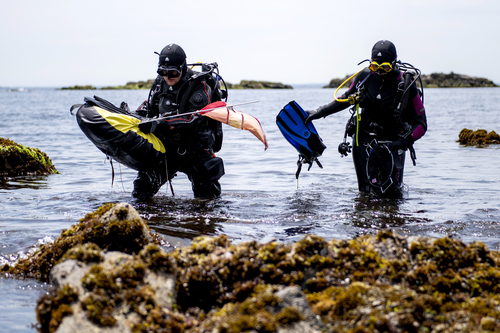
Panama
Explore tropical ecology and reef processes in Panama on the Caribbean Sea to study tropical marine sciences at the Smithsonian Tropical Research Institute’s Bocas del Toro Research Station. The program fully immerses students in Panama’s diverse tropical ecosystems and unique geographical location. The institute is within walking and swimming distance of lagoon, coral reef, seagrass, and mangrove habitats. Nearby fringing coral reefs provide superb diving and snorkeling opportunities. Students complete coursework in the biology of corals, fishes, ocean and coastal processes, and tropical marine ecology utilizing Smithsonian’s classrooms, wet and dry laboratories, dive locker, and research vessels.
Housing is provided on the Smithsonian campus in shared rooms. Dorms are connected to a small dining hall where all meals will be cooked and provided by Smithsonian chefs. Students spend approximately nine weeks at the Smithsonian Tropical Research Institute followed by a one-week trip across the country to Coiba National Park, a marine preserve off the Pacific coast of Panama.
Learn about the Facilities at STRI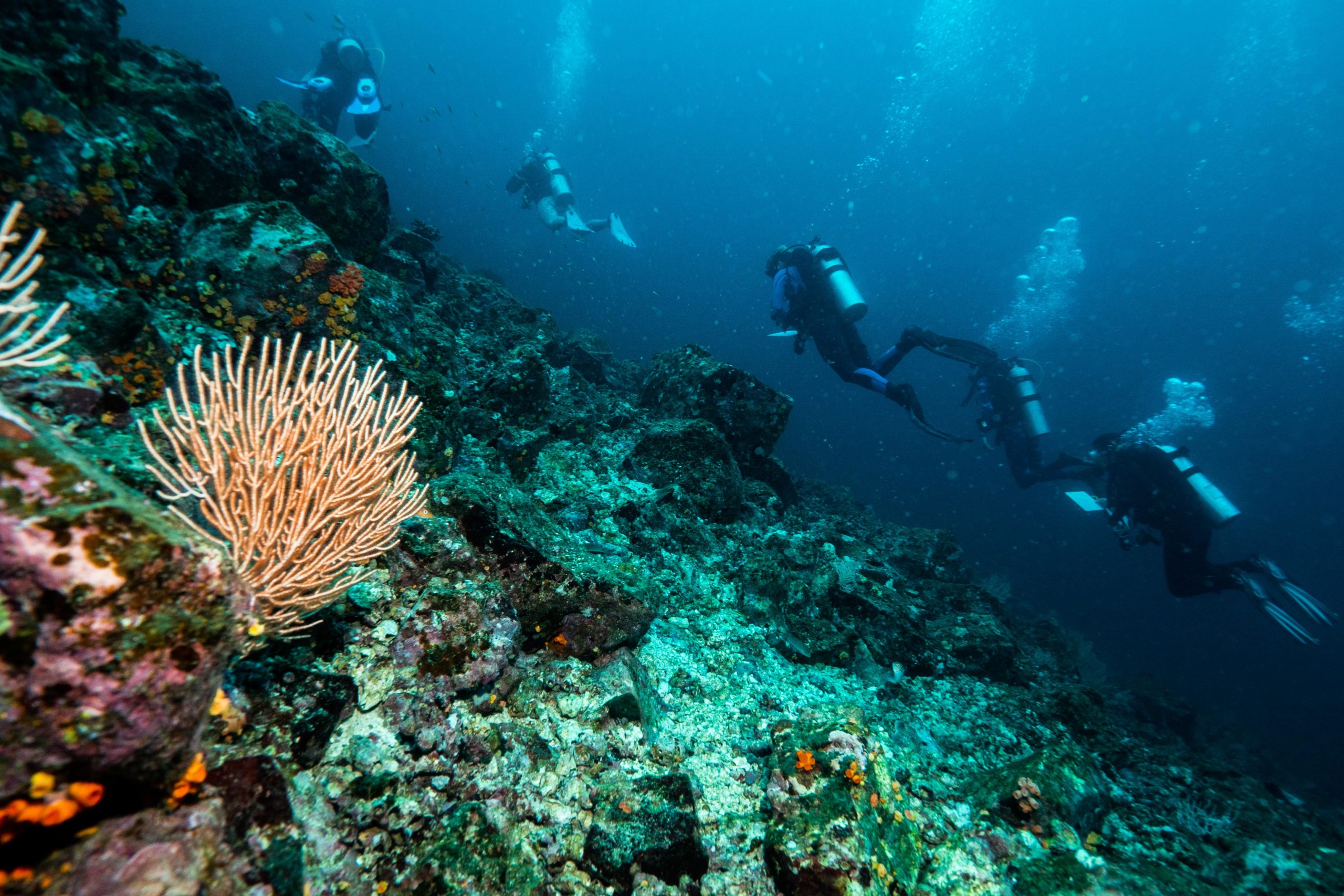
Friday Harbor
Friday Harbor Laboratories, the marine research, and education facility of the University of Washington offers students the opportunity to conduct field-intensive coursework that explores the biodiverse rocky intertidal habitats, kelp forests, and the unique geography of the San Juan Islands. Located in Puget Sound, local waters are cold and productive, while the marine flora and fauna are exceptionally diverse. Habitats include rocky shores, mudflats, sandy beaches, and a wide range of subtidal environments including large kelp communities. The labs are located on a 484-acre forested biological preserve on San Juan Island with a mix of exposed, rocky headlands, sandy beaches, and tidal estuaries.
Traditional dorm-style housing is provided (2 students per room) on the Friday Harbor campus. Meals are cooked and provided by Friday Harbor Laboratory chefs in the large communal dining hall. Students spend approximately 8 weeks at Friday Harbor Laboratories. (Photo by Angela Fan)
Learn about the Facilities at FHL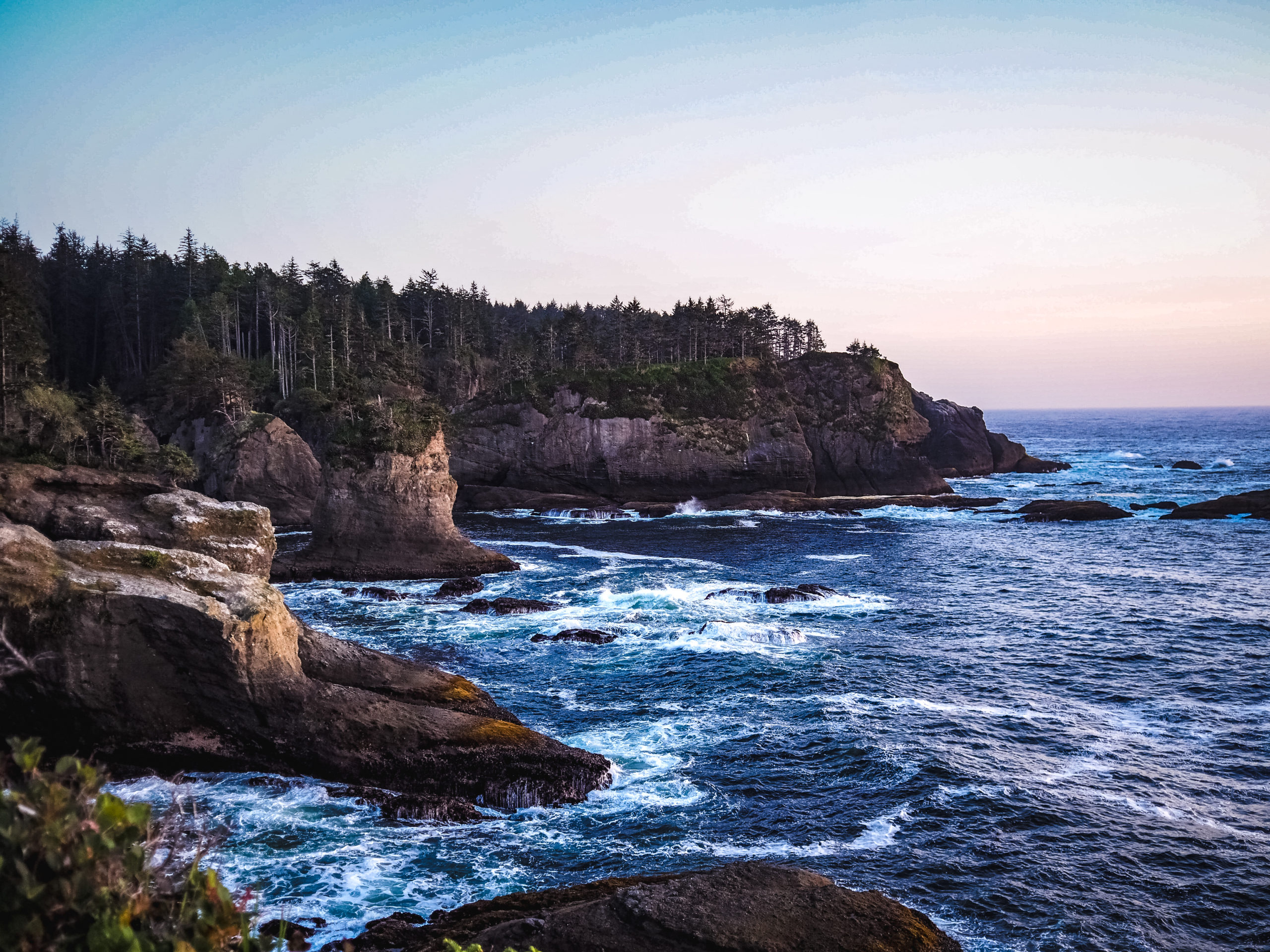
Past Locations
In its 35+ year history, the Three Seas Program has included Jamaica, The Channel Islands, French Polynesia, and other locations in its programming. Instruction locations for the abroad portion are subject to change to reflect the best opportunities for our students.
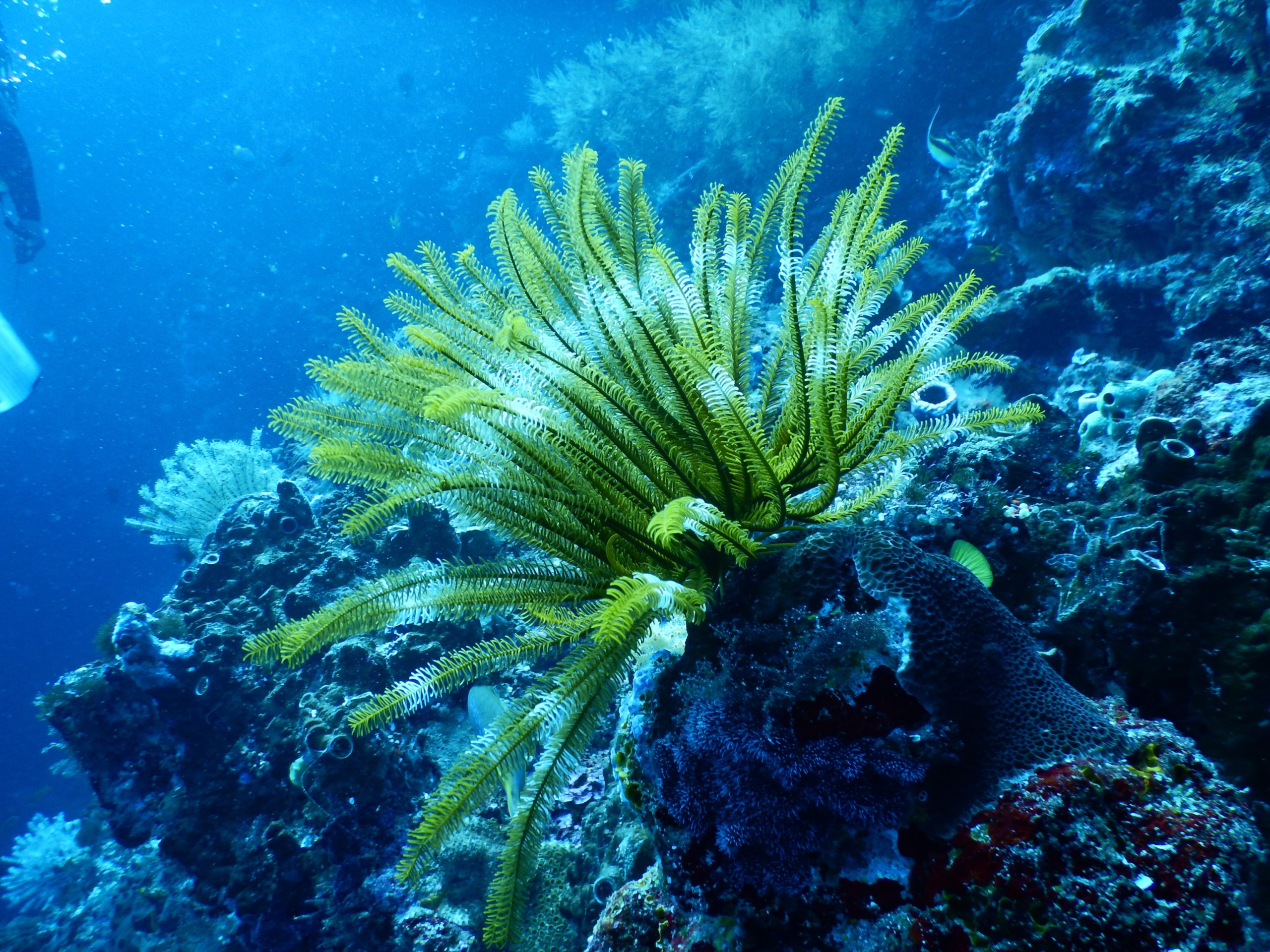
Room and Board Abroad
Housing abroad is arranged by the Three Seas Program. Room and board costs for Panama and Washington are not included in tuition. Costs are comparable to mid-level apartment accommodations and a full meal plan at Northeastern. For information on current Three Seas room and board costs, please email [email protected]. The demanding requirements and accelerated timeline of the program preclude opportunities for teaching or research assistantships. As a result, students must pay their own tuition. For information on current tuition and student loans click here.
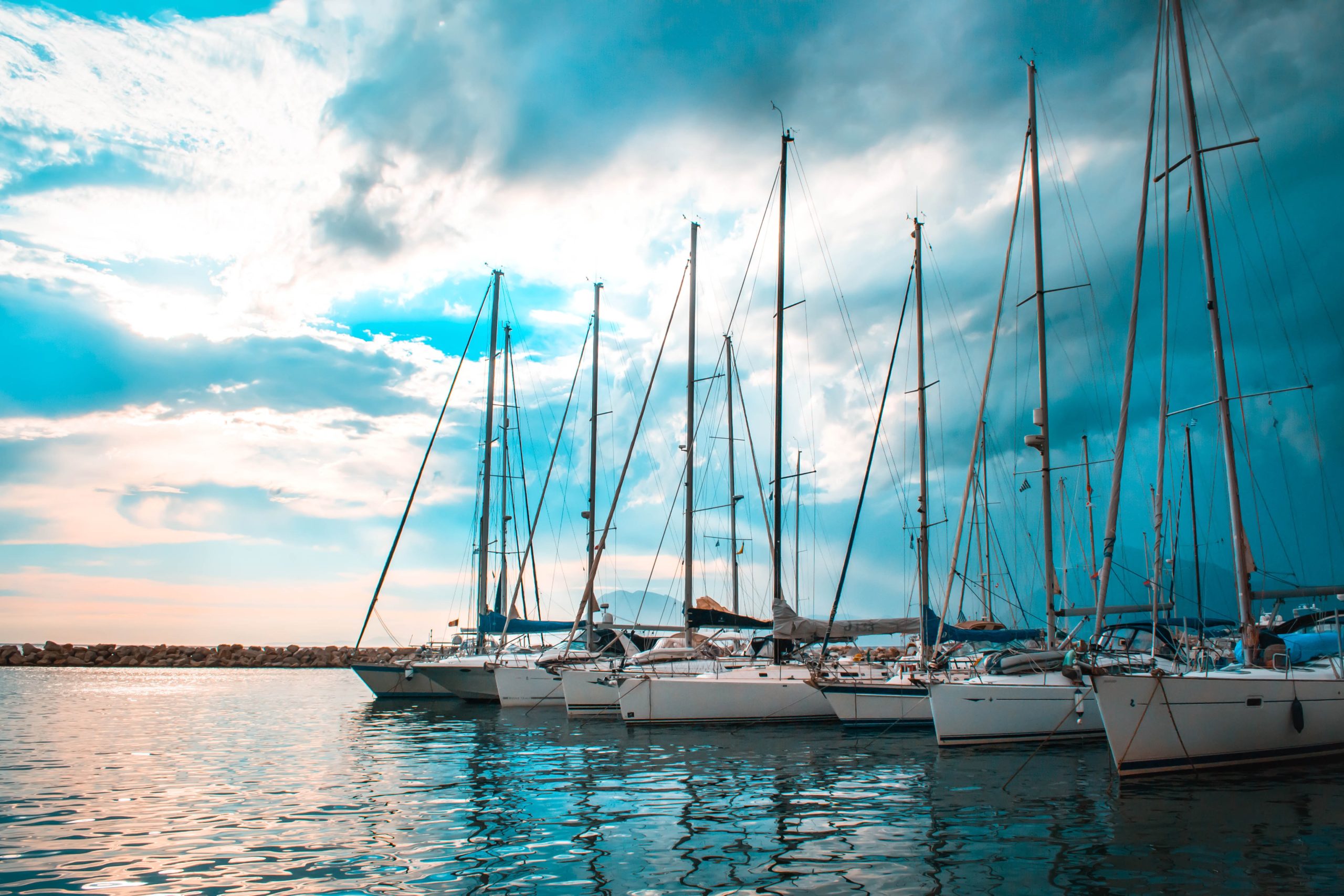
Fall Path
40 semester hours of graduate course work
Fall semester – Nahant, MA
- Marine Spatial Planning
- Sustainability of the Land-Sea Interface
- Experimental Design Marine Ecology
- Marine Biology Careers Seminar
- Dive Research Methods
- New England Marine Biomes
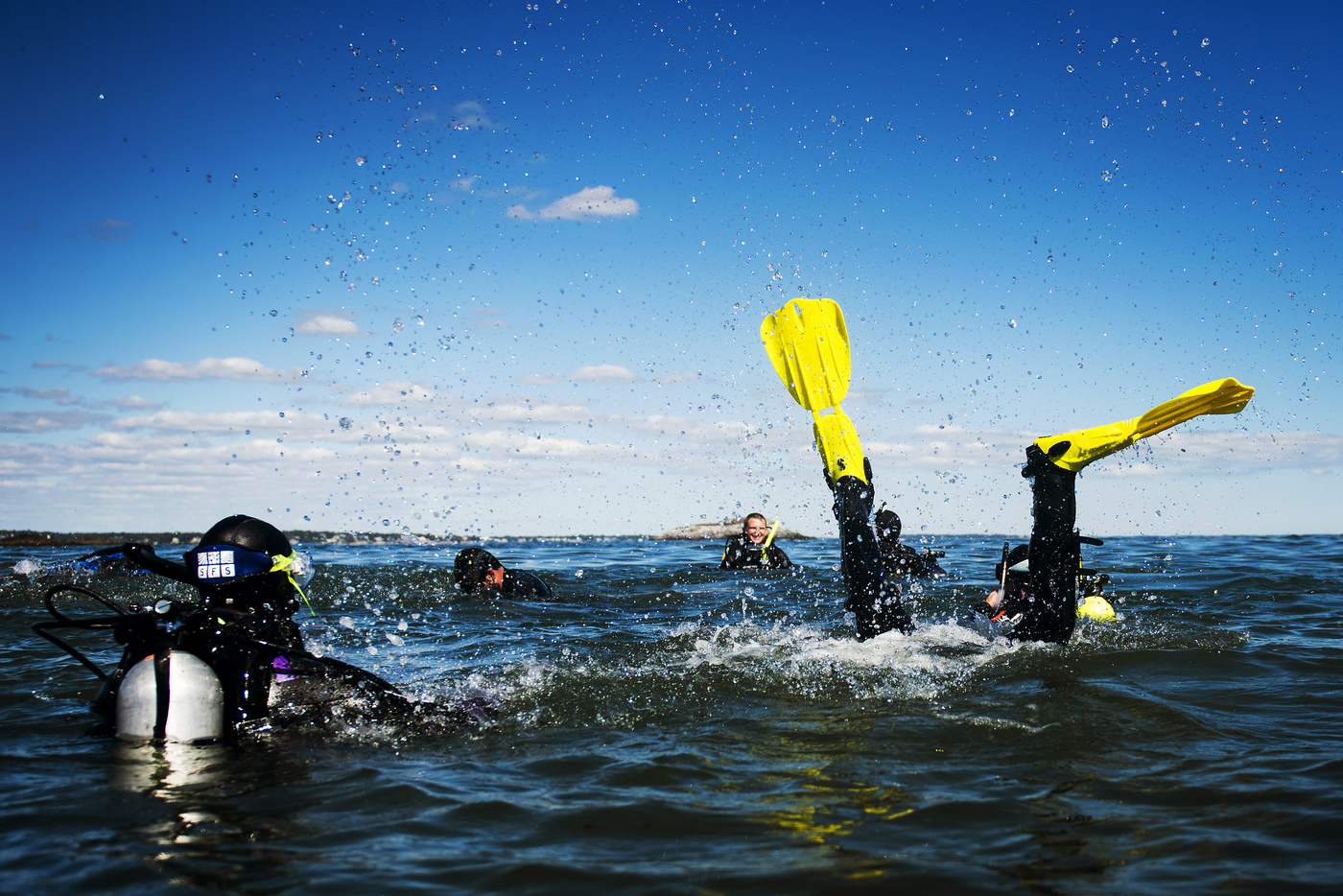
Spring Semester – Abroad
Smithsonian Tropical Research Institute, Panama (9 weeks)
- Biology of Corals
- Ocean and Coastal Processes
- Tropical Marine Ecology
- Biology and Ecology of Fishes
Friday Harbor Laboratories, Washington (8 weeks)
- Marine Birds and Mammals
- Conservation and Restoration of Marine Systems
- Changing Global Oceans
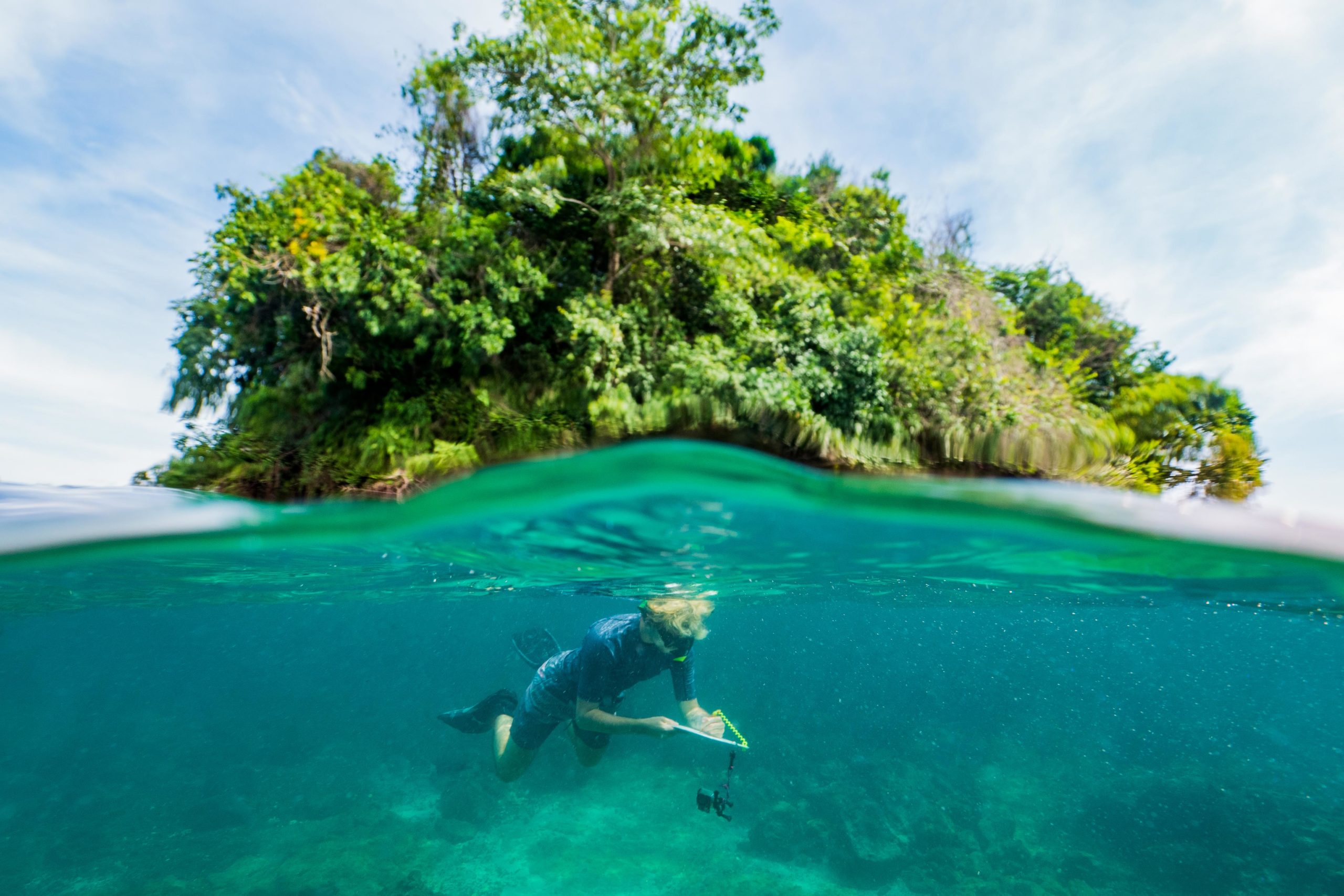
Summer and Fall Semesters, Year 2
- 6-month graduate research project
- Graduate in December
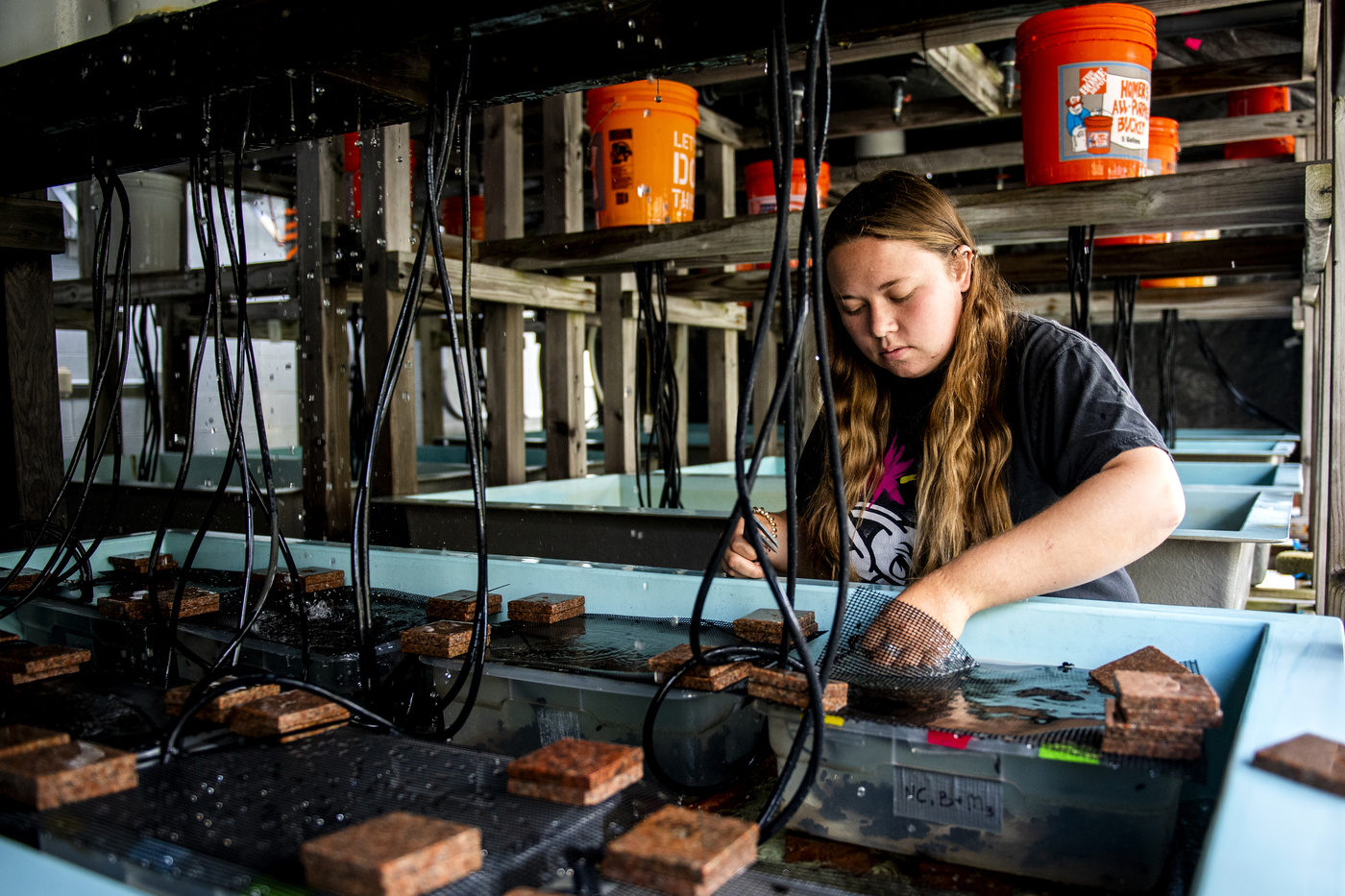
Graduate Option:
The Master of Science in Marine Biology (Three Seas) is a 40 credit graduate program open to anyone who is eager to deepen their knowledge of marine biology and develop skills for successful employment in marine science. Northeastern University graduates are eligible for the Double Husky discount.
Requirements
The deadline for priority admission is January 1st. Applications received after January 1st are reviewed on a rolling basis. 20 students are accepted into the fall path cohort.
- Bachelor’s degree from an accredited college or university
- 3.00 GPA
- Biostats, Marine Biology, Ecology
- Taking all three courses (or their equivalent) is not mandatory, but is highly recommended. Three Seas is an accelerated research and empirically-intensive program. These program prerequisites will better prepare you for success in the program.
- English proficiency can be fulfilled with one of the following
-
- Degree earned or in progress at a U.S. institution – or –
- Degree earned or in progress at an institution where English is the only medium of instruction – or –
- Official exam scores from either the TOEFL iBT, IELTS, Duolingo or PTE exam
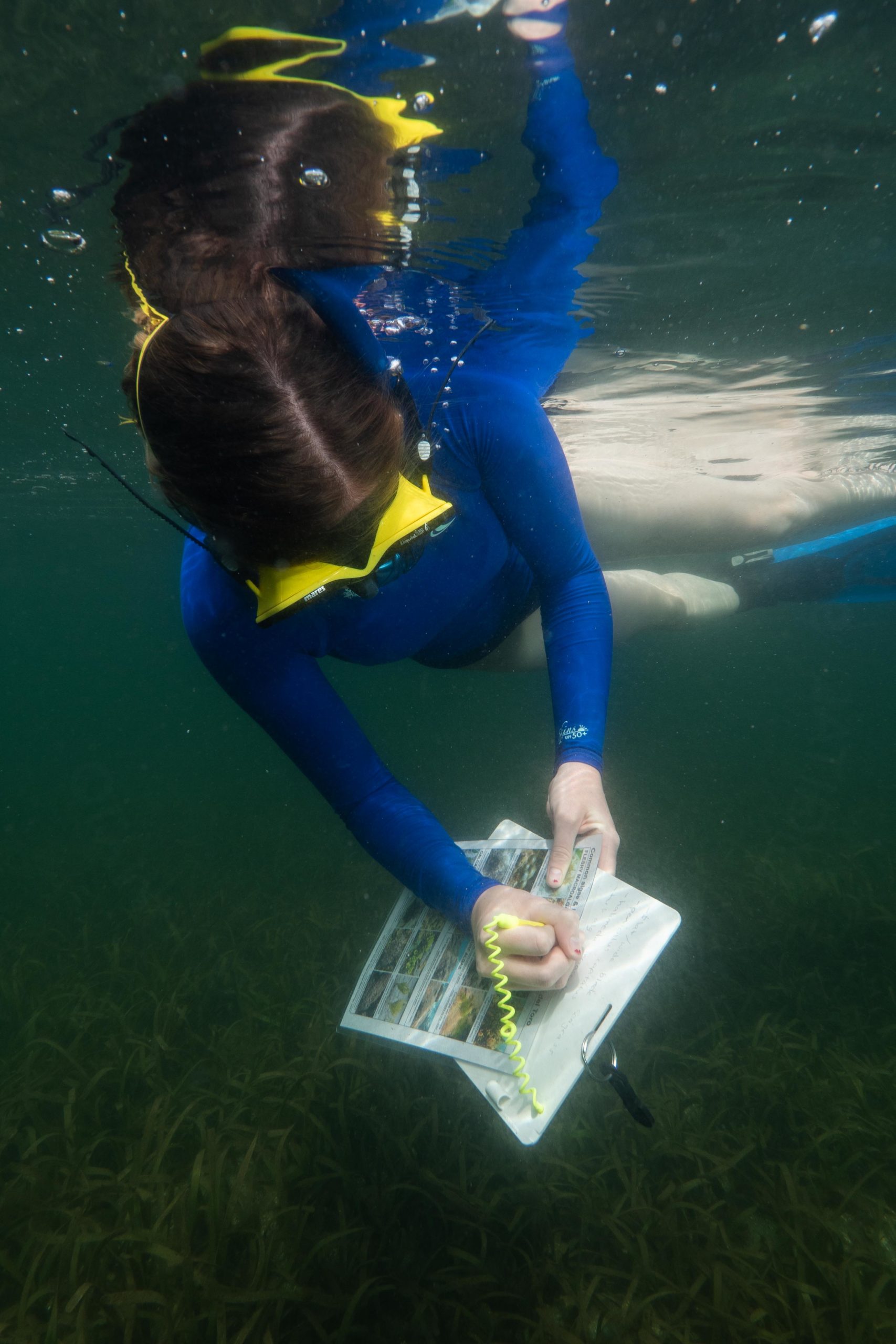
Application Materials
- Official undergraduate institution transcripts
- Resume
- Personal statement
- Writing sample (e.g., lab report, capstone manuscript, science communication article)
- Three letters of recommendation
The GRE is NOT required and is not considered in the admission process for this program
Given the intense field-oriented curriculum, complex logistics, and high cost of the program, an informational visit to the Marine Science Center in Nahant is advised (preferably during the summer). To schedule an informational visit, email the Three Seas Team at [email protected].
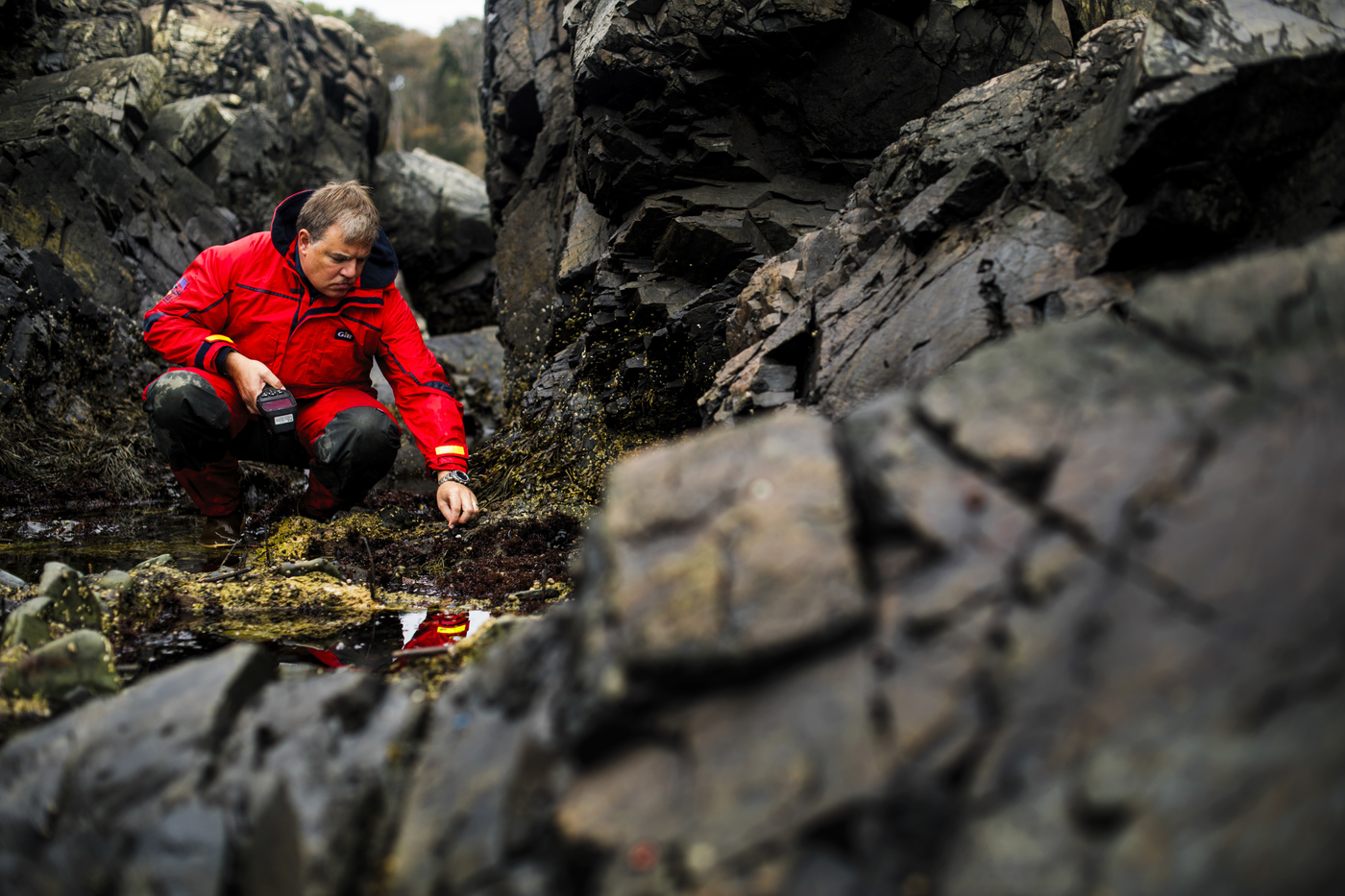
Undergraduate/PlusOne Option:
Northeastern University undergraduate students are eligible to participate in Three Seas and complete a PlusOne bachelor’s/master’s degree program.
How does it work?
The PlusOne option allows students to accelerate the attainment of their master’s degree by applying 16 semester hours from Three Seas curriculum completed as an undergraduate toward their master’s degree. Degrees are earned sequentially with bachelor’s degree completion immediately followed by a PlusOne year to complete the master’s degree.
Students interested in the PlusOne option will enter Three Seas as a senior completing their last two undergraduate semesters in the program students then graduate with their BS and transition into the master’s program. Undergraduate students from any major may still participate in Three Seas after completing prerequisite coursework. We do accept students to the program who are not enrolled at Northeastern University.
If you are interested in participating in Three Seas, please email your academic advisor, Three Seas Program Manager (Andrea Jerabek; [email protected]), and Three Seas Faculty Head (Dr. Tara Duffy; [email protected]) to review your degree audit and develop an academic plan. To learn more about PlusOne programs at Northeastern, click HERE.

Requirements
The deadline for priority admission is December 1st. Applications received after December 1st are reviewed on a rolling basis. Undergraduate students must contact the Three Seas team at least one year prior to the start of the program. Twenty undergraduate students are accepted into the summer path cohort and applications are competitive.
- Currently enrolled Northeastern undergraduate student
- 3.00 GPA
- Biostats, Marine Biology, and Ecology prerequisite coursework
- PlusOne
- Must be Marine Biology, Environmental and Sustainability Sciences, or Ecology and Evolutionary Biology major at Northeastern University
- Must apply online and submit application materials listed above in the Graduate Option section
Questions about the application process? Email the Three Seas office at [email protected].
Scientific Diving
All students are encouraged to participate in the program using SCUBA. Completion of the program while snorkeling is also possible. If you are interested in participating in scientific diving during the Three Seas program, please review the requirements to participate HERE.
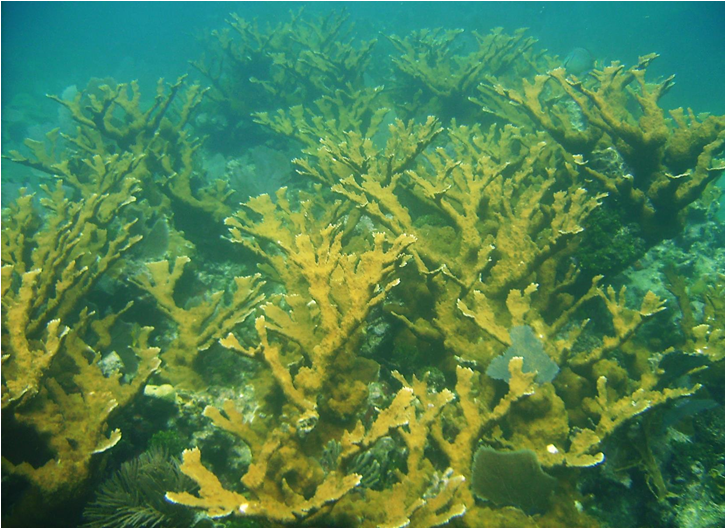
Andrea Jerabek (she/her)
Three Seas Program Manager
Diving Safety Officer
Part-Time Lecturer; Diving Research Methods & Marine Biology Career Seminar
[email protected]
Andrea oversees all program operations, travel logistics, and diving safety procedures. Andrea graduated with a B.S. in Biology from S.U.N.Y Geneseo in 2014 and is a proud alum of the Three Seas Program having earned her M.S. in Marine Biology from Northeastern in 2015. After completing her degrees, Andrea worked as a coastal ecologist in Louisiana at The Water Institute of the Gulf where she collaborated with a multidisciplinary team of physical, natural, and social scientists studying key ecological processes in the coastal wetlands of the Gulf of Mexico. In her free time, Andrea enjoys playing tennis, spending time with friends and family, hiking in the White Mountains in New Hampshire, and perfecting her pizza-making skills.
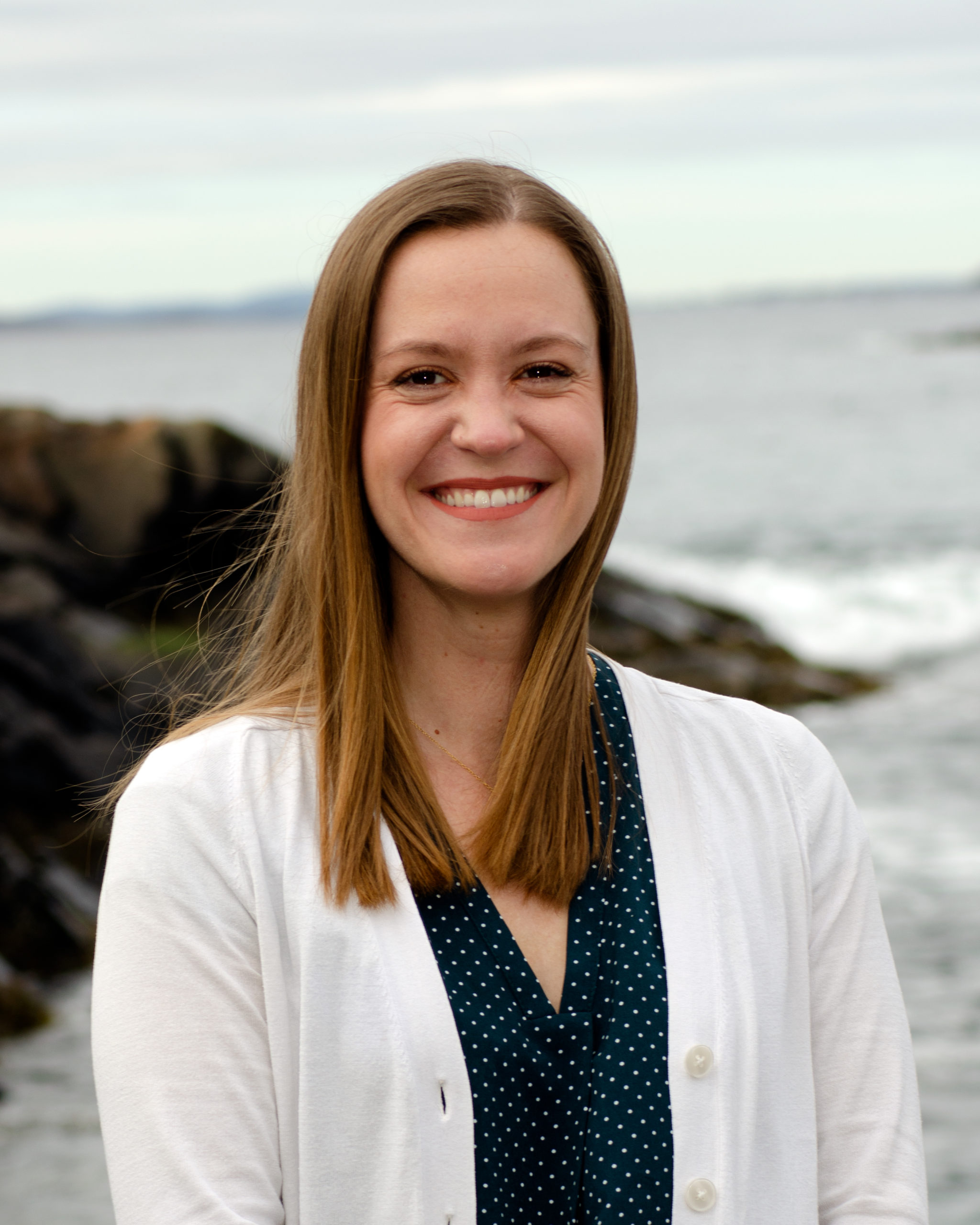
Marissa Varade (she/her)
Three Seas Field Operations Specialist
Assistant Diving Safety Officer
[email protected]
Marissa manages diving and logistical operations abroad for the Three Seas Program and assists with the scientific diving program at the Marine Science Center. She earned her M.S. in Marine Biology from Northeastern University’s Three Seas program in 2018. After graduating, she worked as a marine animal care technician at the Marine Biological Laboratory in Woods Hole, MA. She then transitioned into a role as a research assistant in Dr. Loretta Roberson’s lab at MBL, where she helped develop techniques for culturing tropical seaweed in a laboratory setting. Marissa is excited to be back at the Marine Science Center supporting the Three Seas and scientific diving programs. In her free time, she enjoys playing volleyball and soccer, hiking, and baking desserts.
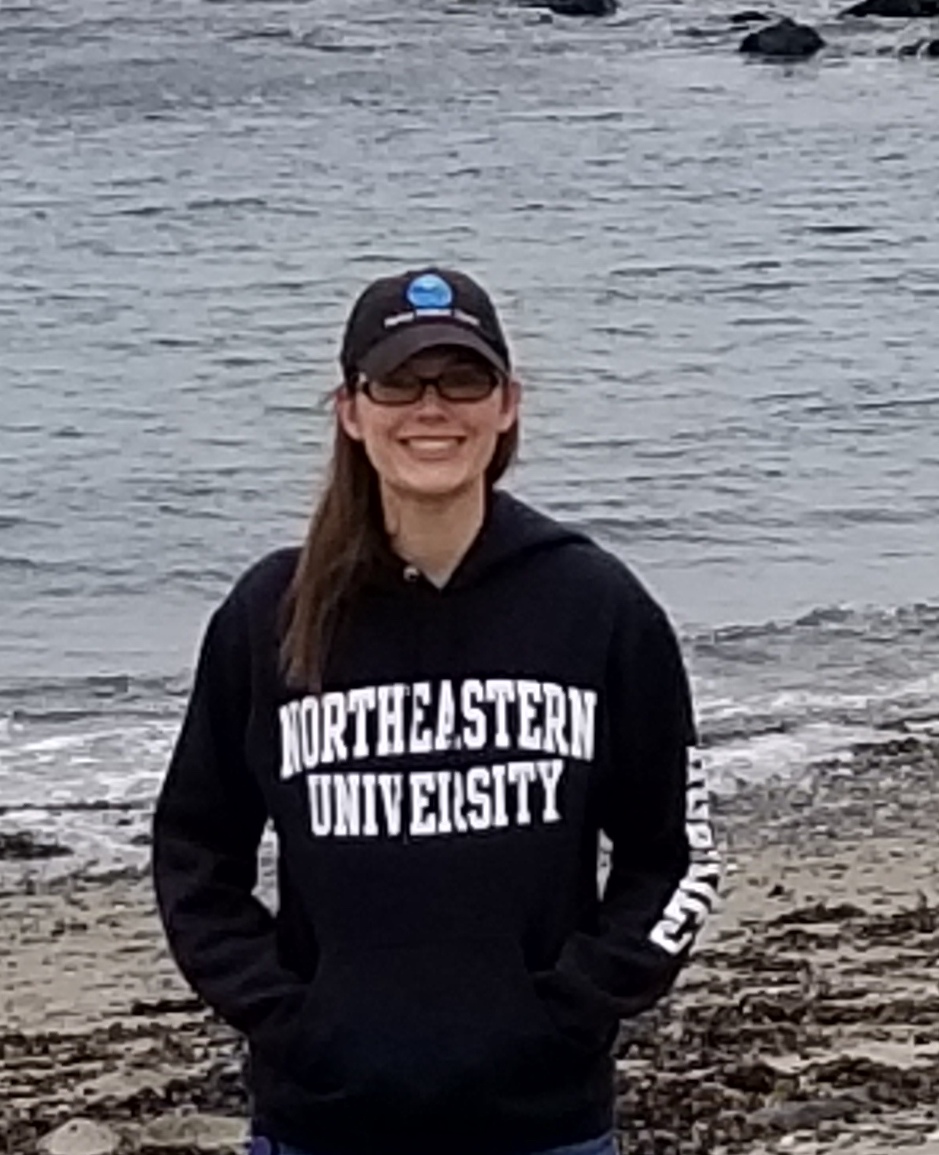
Tara Duffy (she/her)
Three Seas Faculty Head
Associate Teaching Professor
Three Seas Instructor; New England Marine Biomes
Tara brings her research experience and her passion for teaching students to communicate science into courses that include marine sciences, evolution, and food security, and sustainability. She graduated from Stony Brook University in 2010 with a PhD in Marine and Atmospheric Sciences. She then worked at the USGS Conte Anadromous Research Center and the Louisiana Universities Marine Consortium where her research focused on how anthropogenic stressors impact invertebrate and fish populations. She teaches a summer study abroad course that explores conservation biology in the Romanian Carpathian Mountains. In her free time she’s crafting, cooking, open-water swimming, and spending time with family.

The Three Seas Program is dedicated to supporting a diversity of students, staff, and faculty. Click below to view the Department of Marine and Environmental Sciences and Marine Science Center Principles of Community Document.
Principles of CommunityMeet our Alumni
Graduates of Three Seas pursue a wide variety of careers in environmental consulting, non-profit work, state and federal government, outreach and education, and scientific research support.
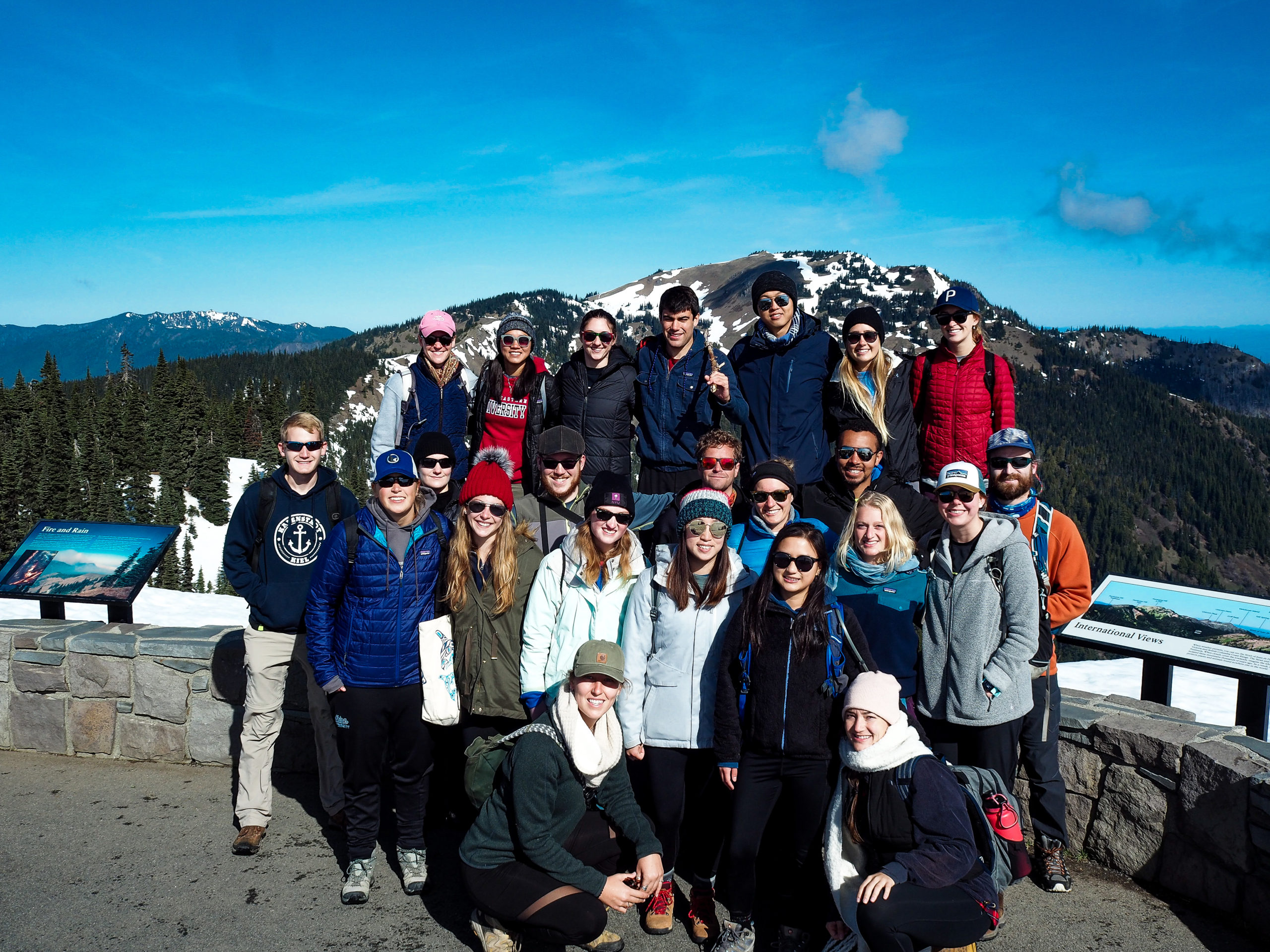
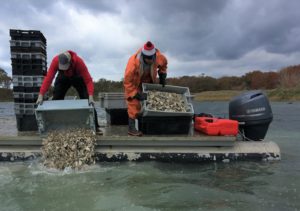
Principal Biologist, Rhode Island Department of Environmental Management: Division of Marine Fisheries
“My Three Seas friends are like my family and I wouldn’t trade that experience for anything.”
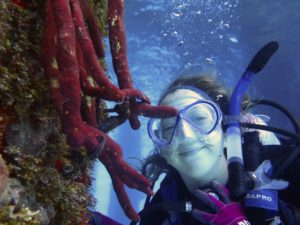
NASEM Gulf Research Program Science Policy Fellow, NOAA RESTORE Science Program
“My favorite memory from my Three Seas student experience was when we all saw a whale shark in Coiba. I remember swimming in a mess of legs and fins and pushing through to see a giant caudal fin emerge.”
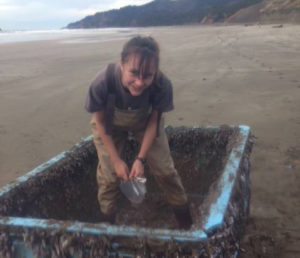
PhD Student, Oregon State University
“The Three Seas Program provided a once in a lifetime experience that I will never forget. I signed up to further my career in Marine Science but came out of it with a group of friends that I will always remember.
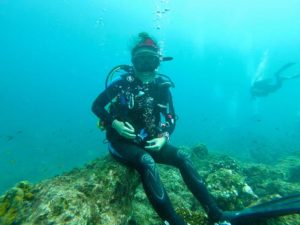
Research Technician, Tufts University School of Medicine
“The renowned Three Seas program developed a huge network of great scientists from all over the world and I believe that Three Seas will never leave your side. It will be there when you need help in your careers, in academia, or just in life, linking different kinds of people.”

PhD Student, University of California at Santa Cruz
“I think the most lasting impressions of Three Seas in my life has been academically – it really helped me build good habits for studying and reading papers, as well as sharpening my writing skills. I often reference the notes I took during my classes because it provided my initial framework/skeleton for deeply understanding ecology and evolution.”
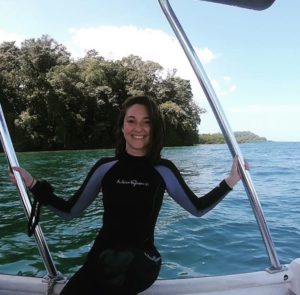
Marine Biologist, Tetra Tech
“I feel so lucky to have been taught by the professors at the MSC. The marine biology community is small, and these professors are superstars within it – you can’t run a lit search or meet a new marine scientist/consultant/government employee without stumbling onto a familiar name.”
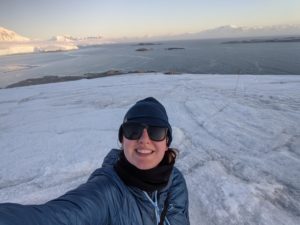
PhD Student, University of Delaware
“Through my coursework in Three Seas, I was inspired to start an honors thesis related to a topic we learned about in class. Without Three Seas, I would have never had the confidence or skill set to even consider an original thesis project as an undergraduate.”

PhD Student, Stanford University
“Three Seas was an ideal way to get hands-on experience across as many ecosystems as possible. In the course of just one year, I did field work in the rocky intertidal, salt marshes, kelp forests, coral reefs in both the Atlantic and Pacific, and the shores of Puget Sound. Each of those experiences was wrapped up in advanced coursework that pushed us to develop our natural history knowledge and scientific independence.”
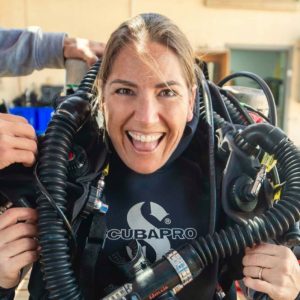 Three Seas Professor, Biology of Corals, Director of Research at the Central Caribbean Marine Institute
Three Seas Professor, Biology of Corals, Director of Research at the Central Caribbean Marine Institute
“Three Seas has been a part of every step in my career since I was a student. I can honestly say that I would not have had the success I have if I had not done this program.”
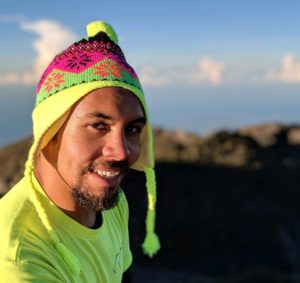
Media and Outreach Coordinator, Monitor National Marine Sanctuary
NOAA
“One of my favorite things about Three Seas is that you graduate with at least 20 professional contacts in your field and lifelong friends. Learning how to work well with a variety of people while conducting high-quality science in sometimes remote and challenging field locations is an important skill that can be applied directly to the workforce.”
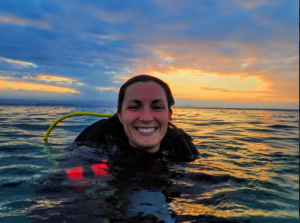
Data Curriculum Specialist, Billion Oyster Project
“Diving every day in Panama (sometimes twice!) was amazing and being able to take classes on topics like coral ecology and then go experience what you're learning about on the reef made the courses that much more memorable and valuable.”

Rita Barron Fellow, Charles River Watershed Association
“I chose the Three Seas Program because of the accelerated experiential learning curriculum. The hands-on learning approach allowed me to apply classroom concepts directly to the field. The 6-month internship helped me refine my interests and provided insight into career options after graduating with my master’s degree”
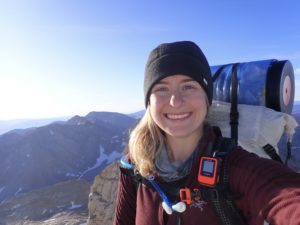
Regulatory Permitting Specialist at WRA, Inc., Freelance Science Writer
“The broad nature of the Three Seas Program has been instrumental in my career as an environmental consultant. While I specialize in eelgrass regulations and coastal ecology, my broad knowledge of fishes, mammals, and birds, combined with my experience conducting field work, much of which I learned or built upon during the Three Seas Program, is an excellent fit for this line of work.”
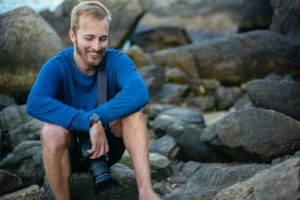
Science Communication Specialist, New Hampshire Sea Grant
“Three Seas showed me I was capable of far more than I thought and could learn what I wasn’t currently capable of.”
